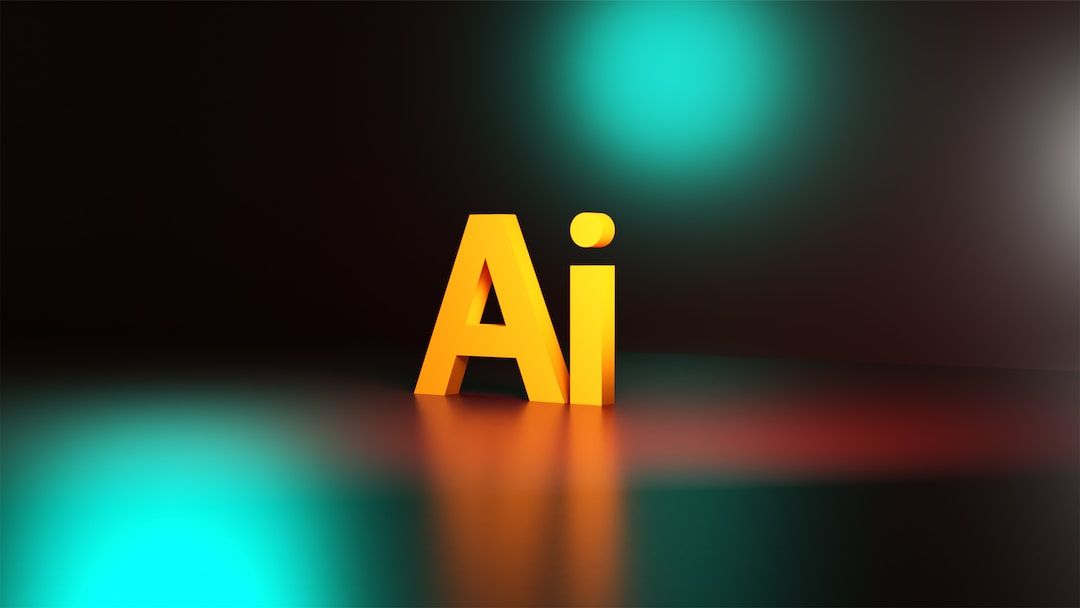
In an age where Artificial Intelligence (AI) is rapidly becoming an integral part of our daily lives, the ethical landscape surrounding its development and deployment is equally evolving. From personal digital assistants to predictive analytics in healthcare, AI’s transformative power is undeniable. However, with great innovation comes great responsibility.
In this article, we aim to shed light on the critical ethical considerations that are essential for building, implementing, and maintaining AI systems responsibly. Whether you are a technologist, business leader, policy maker, or an enthusiastic learner, this guide provides valuable insights into the multi-dimensional aspects of AI ethics.
Understanding and adhering to these ethical principles is not merely a legal obligation but a moral imperative to ensure that AI serves humanity’s best interests without causing inadvertent harm or bias. Join us as we explore these ten key considerations, providing a roadmap for responsible AI development that aligns with societal values, regulations, and human-centred principles.
1. Data Privacy
Data privacy is a paramount concern in AI. The collection, storage, and processing of personal or sensitive data can lead to serious ethical implications if not managed properly. Organisations employing AI must ensure that they are compliant with data protection regulations, such as GDPR, and adopt strong encryption and security measures. Transparency with users about how their data will be used, and obtaining proper consent, is key to maintaining trust and integrity.
2. Bias and Fairness
AI algorithms are trained on data, and if this data contains biases, the algorithms may unintentionally propagate or even exacerbate these biases. Ensuring fairness means that algorithms must be audited and tested for potential biases, whether related to race, gender, or other socio-economic factors. Implementing a robust framework that assesses fairness and promotes diverse data can mitigate this issue.
3. Transparency and Explainability
AI systems, particularly deep learning models, are often seen as “black boxes” that provide no insight into how they reach a particular decision. This lack of transparency can be concerning in critical applications such as healthcare or legal decisions. Efforts must be made to develop models that are both accurate and interpretable, enabling users to understand and trust the system’s decision-making process.
4. Accountability and Responsibility
Determining responsibility for the actions and decisions made by an AI system can be complex. A clear framework for accountability that delineates roles and responsibilities is essential to handle potential errors or malfunctions. Organisations must also be prepared to take corrective actions and learn from mistakes to ensure continuous improvement and adherence to ethical principles.
5. Environmental Sustainability
The energy consumption of training and running AI models, particularly large deep learning architectures, can be substantial. Ethical AI development requires considering the environmental impact and working towards energy-efficient algorithms and hardware. Sustainable practices in AI help to align technological advancements with ecological responsibility.
6. Accessibility and Inclusion
AI has the potential to either bridge or widen the socio-economic divide. Ensuring that AI technologies are accessible and inclusive to all, regardless of economic status, geographical location, or disability, is an ethical imperative. It fosters a more equitable distribution of benefits and minimises discrimination.
7. Human Autonomy
The integration of AI in decision-making processes should not undermine human autonomy. There must be mechanisms in place that allow human intervention, oversight, and the ability to challenge AI-driven decisions. Balancing automation and human control preserves dignity and allows for personalised and compassionate interactions.
8. Safety and Security
Ensuring the safety and security of AI systems is vital to prevent malicious attacks or unintended harmful consequences. Robust testing, monitoring, and adherence to security standards are critical in maintaining the integrity of AI systems, protecting both the organisation and the end-users.
9. Economic Impact and Job Displacement
AI automation may lead to job displacement in certain sectors. Ethical considerations must include planning for the economic impact on workers and creating pathways for retraining and new opportunities. Collaborative efforts between industries, governments, and educational institutions, such as Duco Digital Training’s professional qualifications, can provide support in navigating these transitions.
10. Global Collaboration and Standards
AI is a global phenomenon, and ethical considerations must extend beyond local or national boundaries. Collaborating on international standards and guidelines ensures that ethical practices are consistently applied across the globe. This harmonisation supports responsible innovation and fosters trust among nations, corporations, and individuals.
The ethical considerations in AI are multifaceted and require a concerted effort from all stakeholders, including developers, regulators, businesses, and educators. Through transparency, inclusivity, accountability, and collaboration, we can steer AI development towards a path that aligns with our shared values and societal goals. Courses such as those offered by Duco Digital Training that focus on AI ethics provide the necessary education and insights to build a responsible AI future.
In this article, we aim to shed light on the critical ethical considerations that are essential for building, implementing, and maintaining AI systems responsibly. Whether you are a technologist, business leader, policy maker, or an enthusiastic learner, this guide provides valuable insights into the multi-dimensional aspects of AI ethics.
Understanding and adhering to these ethical principles is not merely a legal obligation but a moral imperative to ensure that AI serves humanity’s best interests without causing inadvertent harm or bias. Join us as we explore these ten key considerations, providing a roadmap for responsible AI development that aligns with societal values, regulations, and human-centred principles.
1. Data Privacy
Data privacy is a paramount concern in AI. The collection, storage, and processing of personal or sensitive data can lead to serious ethical implications if not managed properly. Organisations employing AI must ensure that they are compliant with data protection regulations, such as GDPR, and adopt strong encryption and security measures. Transparency with users about how their data will be used, and obtaining proper consent, is key to maintaining trust and integrity.
2. Bias and Fairness
AI algorithms are trained on data, and if this data contains biases, the algorithms may unintentionally propagate or even exacerbate these biases. Ensuring fairness means that algorithms must be audited and tested for potential biases, whether related to race, gender, or other socio-economic factors. Implementing a robust framework that assesses fairness and promotes diverse data can mitigate this issue.
3. Transparency and Explainability
AI systems, particularly deep learning models, are often seen as “black boxes” that provide no insight into how they reach a particular decision. This lack of transparency can be concerning in critical applications such as healthcare or legal decisions. Efforts must be made to develop models that are both accurate and interpretable, enabling users to understand and trust the system’s decision-making process.
4. Accountability and Responsibility
Determining responsibility for the actions and decisions made by an AI system can be complex. A clear framework for accountability that delineates roles and responsibilities is essential to handle potential errors or malfunctions. Organisations must also be prepared to take corrective actions and learn from mistakes to ensure continuous improvement and adherence to ethical principles.
5. Environmental Sustainability
The energy consumption of training and running AI models, particularly large deep learning architectures, can be substantial. Ethical AI development requires considering the environmental impact and working towards energy-efficient algorithms and hardware. Sustainable practices in AI help to align technological advancements with ecological responsibility.
6. Accessibility and Inclusion
AI has the potential to either bridge or widen the socio-economic divide. Ensuring that AI technologies are accessible and inclusive to all, regardless of economic status, geographical location, or disability, is an ethical imperative. It fosters a more equitable distribution of benefits and minimises discrimination.
7. Human Autonomy
The integration of AI in decision-making processes should not undermine human autonomy. There must be mechanisms in place that allow human intervention, oversight, and the ability to challenge AI-driven decisions. Balancing automation and human control preserves dignity and allows for personalised and compassionate interactions.
8. Safety and Security
Ensuring the safety and security of AI systems is vital to prevent malicious attacks or unintended harmful consequences. Robust testing, monitoring, and adherence to security standards are critical in maintaining the integrity of AI systems, protecting both the organisation and the end-users.
9. Economic Impact and Job Displacement
AI automation may lead to job displacement in certain sectors. Ethical considerations must include planning for the economic impact on workers and creating pathways for retraining and new opportunities. Collaborative efforts between industries, governments, and educational institutions, such as Duco Digital Training’s professional qualifications, can provide support in navigating these transitions.
10. Global Collaboration and Standards
AI is a global phenomenon, and ethical considerations must extend beyond local or national boundaries. Collaborating on international standards and guidelines ensures that ethical practices are consistently applied across the globe. This harmonisation supports responsible innovation and fosters trust among nations, corporations, and individuals.
The ethical considerations in AI are multifaceted and require a concerted effort from all stakeholders, including developers, regulators, businesses, and educators. Through transparency, inclusivity, accountability, and collaboration, we can steer AI development towards a path that aligns with our shared values and societal goals. Courses such as those offered by Duco Digital Training that focus on AI ethics provide the necessary education and insights to build a responsible AI future.


